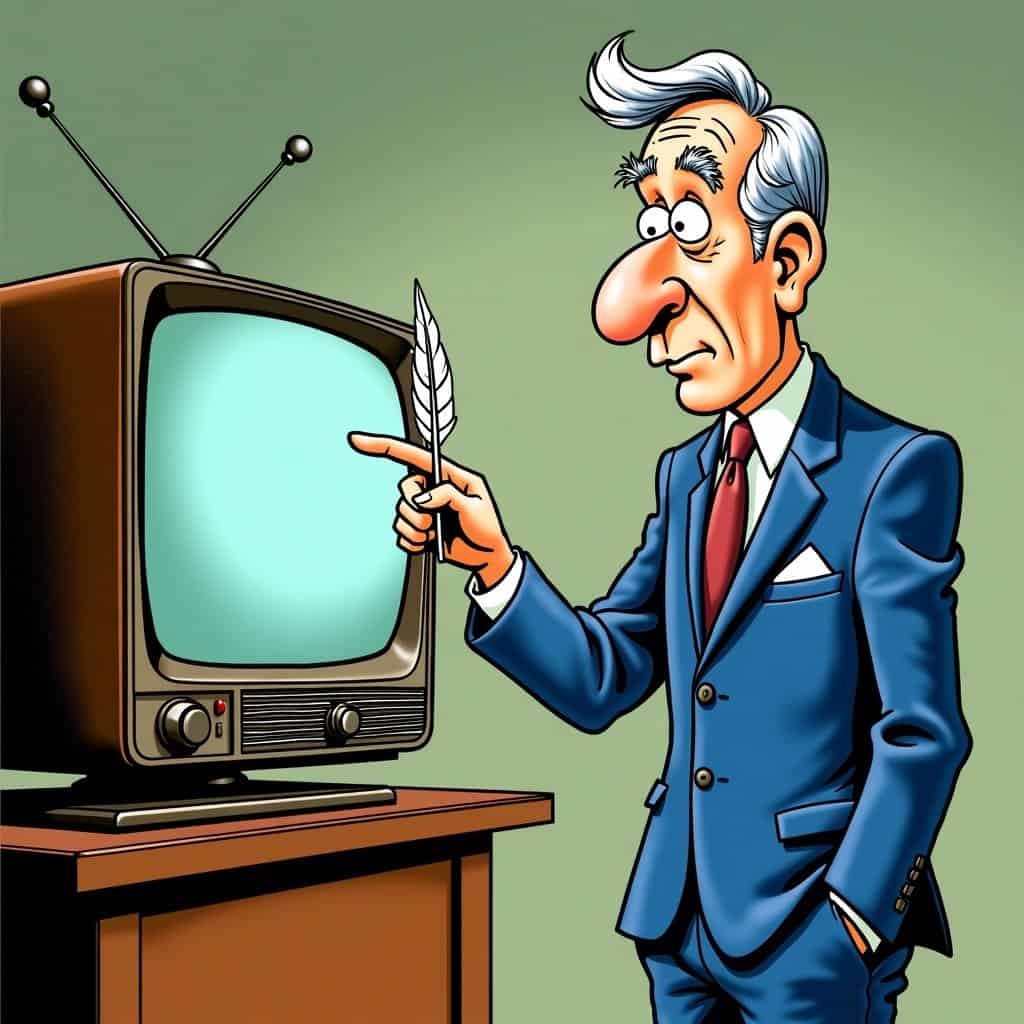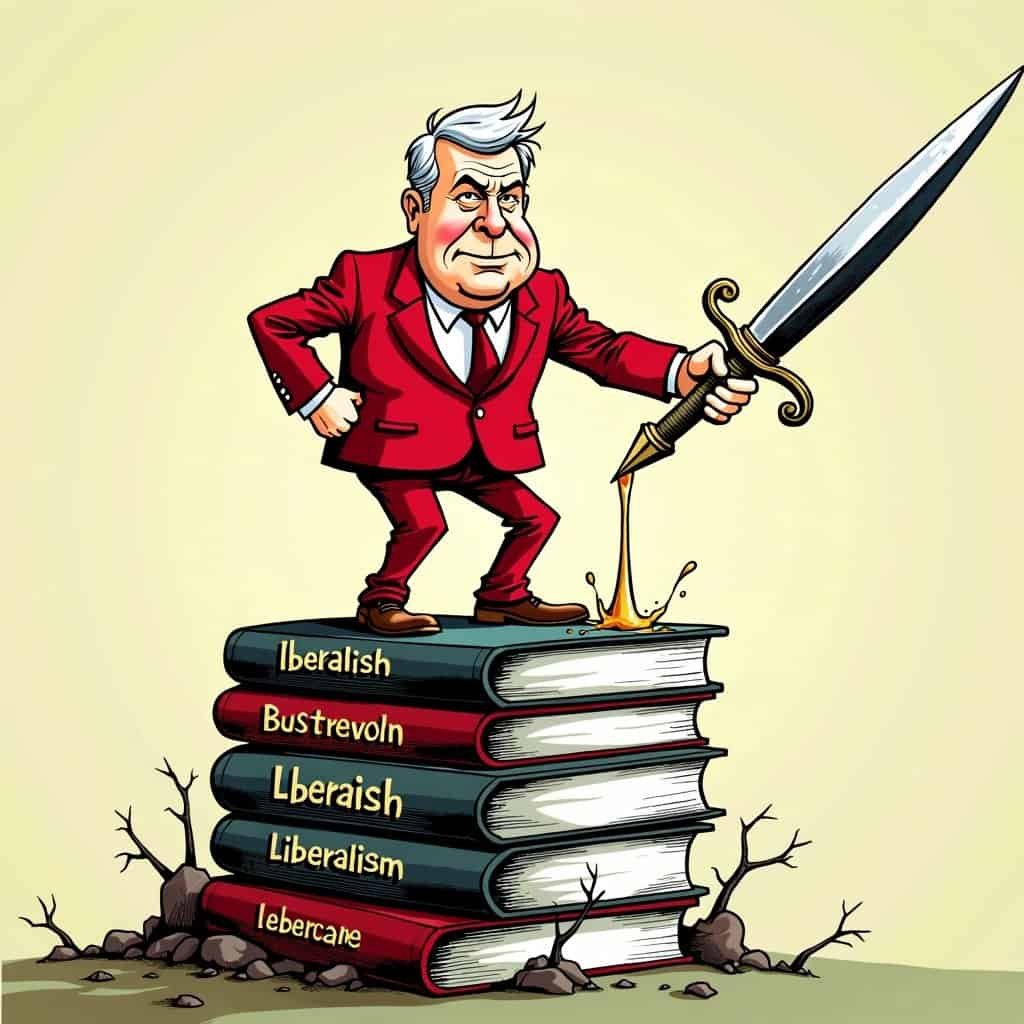William F. Buckley Jr., a master of verbal judo, could knock liberal academia off its pedestal with the finesse of a ballet dancer and the force of a freight train. If you’ve ever caught yourself snoozing through a liberal professor’s droning lecture on postmodern existentialism or other academic mumbo-jumbo, Buckley’s commentary is your wake-up call.
Buckley, with his distinctive, aristocratic flair, took aim at liberal academia not just for its political leanings but for its glaring lack of intellectual variety. Picture a university library where the only books are ‘Communist Manifesto’ and ‘How to Gripe about Capitalism 101.’ That’s the kind of academic dystopia Buckley saw brewing in the supposedly hallowed halls of Harvard and Yale. He argued these institutions were churning out progressive automatons who spouted nonsensical phrases like ‘deconstructionist critique’ and ‘intersectional dynamics’ as if they actually held water.
In his groundbreaking book, ‘God and Man at Yale,’ Buckley didn’t just dip his toes into criticism; he dove headfirst into the deep end. He accused these elite schools of robbing students of real intellectual debate and force-feeding them a one-course meal of leftist ideology. Imagine a buffet where kale is the only option—no juicy steaks, no creamy mashed potatoes—just kale. Ad infinitum. That’s how Buckley viewed the academic diet dished out by liberal institutions.
Buckley’s Quips: A Chart of Wit
Buckley’s Witty Observations on Liberal Academia
| Topic | Buckley’s Take |
|---|---|
| Course Offerings | “Introduce ‘Marxism 101’ at Yale, and professors would start an auction to teach it.” |
| Intellectual Diversity | “It’s like a buffet where kale is the only option.” |
| Liberal ‘Inclusivity’ | “Everyone’s invited, but the bouncer only lets in people wearing Che Guevara T-shirts.” |
He once quipped that you could introduce a new course at Yale called ‘Marxism 101,’ and every professor would trip over themselves to teach it. And by trip, I mean they’d practically start a bidding war to see who gets to fill impressionable minds with socialist fairy tales. This stood in stark contrast to conservative values of independent thought and intellectual rigor.
Now, let’s ponder the gulf Buckley highlighted between conservative and liberal thought. Conservatives like Buckley champion free market capitalism, personal accountability, and limited government—essentially, a buffet of ideas meant to stimulate brain cells, not just stuff them with ideological cotton candy. On the flip side, liberal academia seems to love economic models where everyone gets an ‘A,’ despite the obvious fact that not everyone bothers with the homework. Remember Snowflake Utopia? Neither do I, because it’s as real as a unicorn riding a dragon.
Liberal vs. Conservative Academia: A Comparison
Academic Approaches: Liberal vs. Conservative
| Aspect | Liberal Academia | Conservative Ideal |
|---|---|---|
| Economic Models | Everyone gets an ‘A’ | Free market capitalism |
| Personal Responsibility | Systemic factors trump individual action | Individual accountability |
| Government Role | Expansive government intervention | Limited government |
To Buckley, the biggest irony was how liberal professors claimed to be champions of diversity while ensuring that no conservative viewpoints ever tainted their pristine, progressive syllabi. It’s like throwing a party and saying, ‘Everyone’s welcome,’ but the bouncer only admits folks wearing Che Guevara T-shirts. Even today, some universities react to conservative ideas like the Wicked Witch of the West to a bucket of water.
Buckley’s sharp wit and intellect weren’t about picking fights for the sake of it. He truly believed in debate’s power to sharpen the mind and challenge assumptions. Conservative or not, he argued that education should be a battlefield of ideas, not a lopsided match where the referee’s already in one team’s pocket. He longed for a time when students were pushed to read Milton Friedman alongside Karl Marx, and to form opinions based on logic, not blind faith.
But liberal academia, high on its own self-righteousness, often dismissed Buckley as an outdated relic. They missed the irony that real progress, the kind they claimed to adore, can only come from questioning, critique, and yes, a dash of good-natured ribbing. William F. Buckley Jr.’s legacy stands as a reminder of this vision. So next time you overhear a campus chat about the ‘patriarchy’ or ‘late capitalism,’ do yourself a favor: channel your inner Buckley, toss out a thought-provoking question, and watch the sparks fly.






